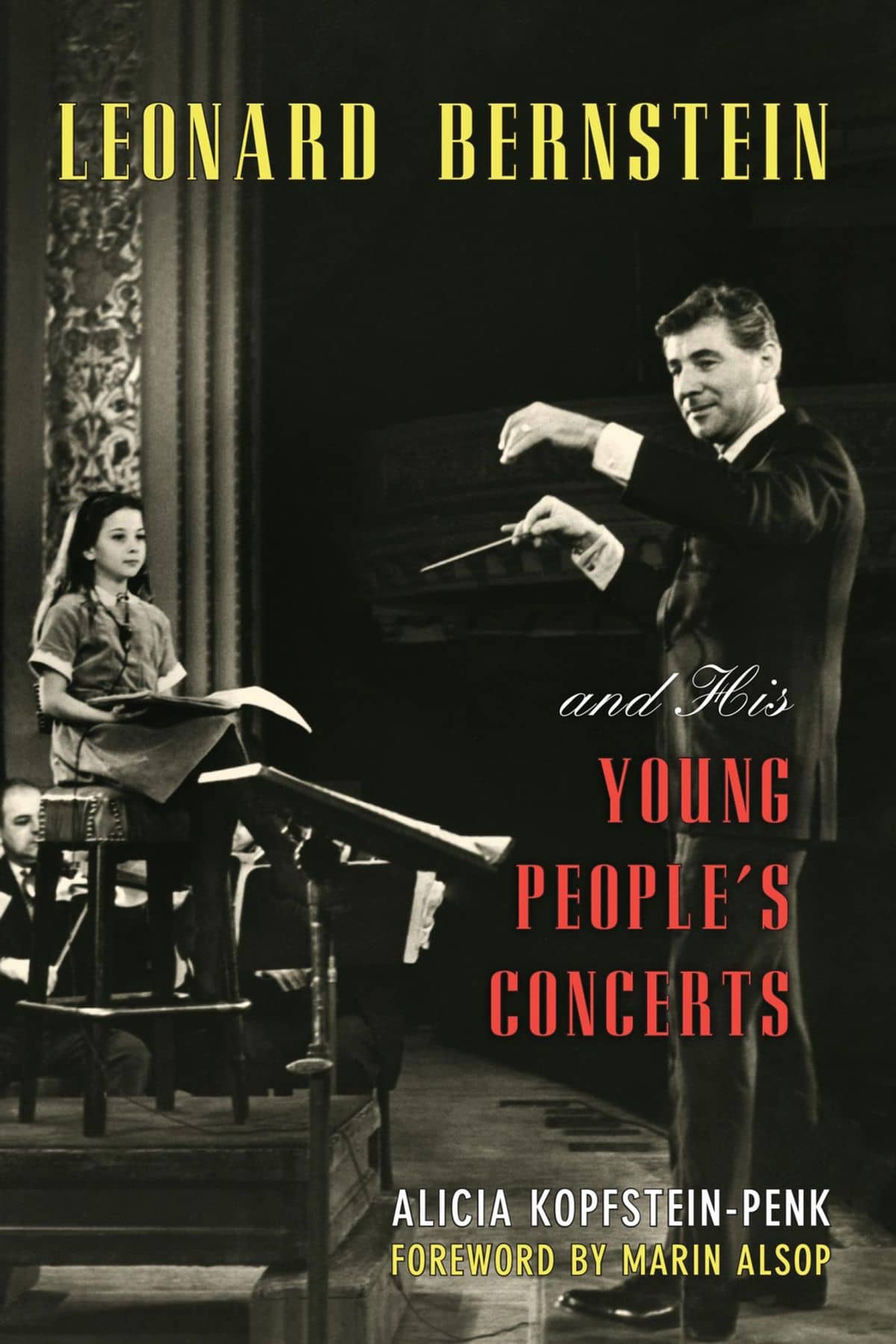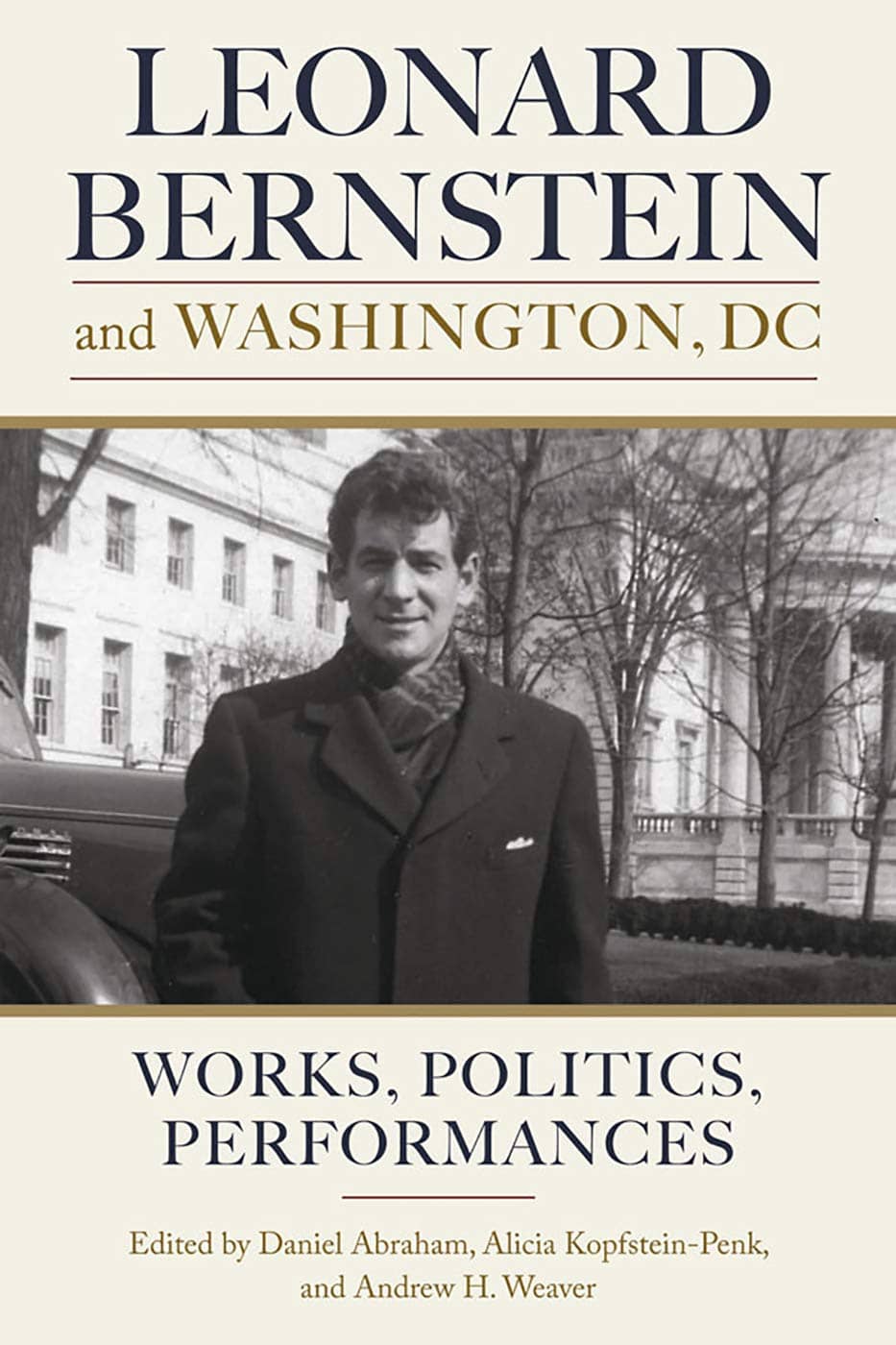Of course, I love music. But I also love knowledge, research, and discovery. And like my hero, Leonard Bernstein, I love sharing my enthusiasms with others. I am privileged to be trained as a scholar, which has led to some marvelous adventures giving presentations, radio interviews, and some really interesting writings. Below are some of the fruits of my labors as a scholar.

Leonard Bernstein and his Young People’s Concerts; 2015
Leonard Bernstein touched millions of lives as composer, conductor, teacher, and activist. He frequently visited homes around the world through the medium of television, particularly through his fifty-three award-winning Young People’s Concerts (1958-1972), which at their height were seen by an audience of nearly ten million in over forty countries. Originally designed for young viewers but equally attractive to eager adults, Bernstein’s brilliance as a teacher shone brightly in his televised presentations. And yet, despite the light touch of the “maestro,” the innocence of his audience, and the joyousness of each show’s topic, the turbulence of the times would peek through.
In this first in-depth look at the series, Alicia Kopfstein’s Leonard Bernstein and His Young People’s Concerts illustrates how the cultural, social, political, and musical upheavals of the long sixties impacted Bernstein’s life and his Young People’s Concerts. Responding to trends in corporate sponsorship, censorship, and arts programming from the Golden Age of Television into the 1970s, the Young People’s Concerts would show the impact of and reflect the social and cultural politics of the Cold War, Vietnam, the Civil Rights and Women’s Movements, and the Counterculture. Bernstein cheerfully bridged classical and popular tastes, juxtaposing the Beatles with Mozart even as he offered personal, televised pleas for peace and unity. At the same time, the concerts reflect Bernstein’s troubled relationship as a professional musician with the dominance of atonality and his quest to nurture American music.
Anyone who enjoys the oeuvre of Leonard Bernstein, has watched his Young People’s Concerts, or is passionate about the history of the long sixties will find in Leonard Bernstein and His Young People’s Concerts a story of all three captured in this monumental study.
Reviews:
[Leonard Bernstein and His Young People's Concerts] is a bristlingly well-informed monograph that draws on Bernstein’s archives to tell the story of how his Young People’s Concerts telecasts came to be, and why they have had no true successors. — The Wall Street Journal
Kopfstein proves to be a thorough interrogator of both process and product and the personalities involved. She is particularly revealing about the history and development of the concerts and in her examination of the challenges to key participants in meeting the plethora of conflicting cultural, social and political tropes that emerged in the long 1960s. No less dogged is her analysis of the content and reception of the individual programmes, the detail noted with an almost forensic exactitude. The result is a remarkable document of a remarkable series of documents and an invaluable addition to our deeper understanding of the multi-faceted Bernstein. — Classical Music
If one word can describe Kopfstein’s work, it is 'complete.' The book is as much a history as it is a biographical volume on the pedagogical work of Leonard Bernstein. She provides hundreds of footnotes and eight appendices and leaves no stone unturned to tell the story of the Young People’s Concerts. — Quarter Notes
[The author] presents [Bernstein] to us as honestly and in as much detail as is humanly possible. — Fanfare Magazine
As this well-researched volume reveals, Bernstein’s specific pedagogical contributions through the medium of television show how Bernstein engaged classical music as a tool for widespread pleasure, social change, and global unity. At once a biography of Bernstein and of the Young People’s Concerts, Kopfstein’s book uses analysis of the concerts and the musical performances within them to shine new light on Bernstein’s life and career. The resulting dialogue...is fascinating and thought-provoking. — ARSC Journal
Alicia Kopfstein has written a thrilling and vivid account of the element in Leonard Bernstein's work that touched more Americans than anything else he did: the musical education—and inspiration, too—of an entire generation. The Young People’s Concerts were at the heart of Leonard Bernstein's philosophy and this wonderfully researched book gives us the how and why of a splendid chapter in television history and Lenny's life. A marvelous piece of work. It is one of the best books about Bernstein I have ever read. — Humphrey Burton, producer, director, and Bernstein biographer
Alicia Kopfstein is a master of archival research. In her recent study of Leonard Bernstein’s Young People’s Concerts and their cultural significance she has painstakingly gone through a large body of material in rich detail. Her study is exhaustive and extensive, and will form the foundation for future scholarship on Bernstein and this important cultural legacy. — Elizabeth Wells, Mt. Alison University, author of West Side Story: Cultural Perspectives on an American Musical
For the general public, the Young People’s Concerts with the New York Philharmonic were one of the highest-profile parts of Leonard Bernstein’s remarkable career. The broadcasts have been considered by scholars for their educational content and value and as part of Bernstein’s work with the orchestra, but, until now, little work had been done in terms of putting them in the broader contexts of Bernstein’s life or the larger musical world. Alicia Kopfstein has done this beautifully in this study, combining dogged archival work in the Bernstein Collection at the Library of Congress with an encyclopedic knowledge of the Bernstein bibliography and knowledgeable handling of related topics in American music, modern music, cultural contexts, and the medium of television. This fine work is the kind of study that needed to be written on Bernstein and the Young People’s Concerts. — The University of Kansas, Paul Laird, Director of Musicology Division, The University of Kansas, author of Leonard Bernstein: A Guide to Research.

Leonard Bernstein and Washington, DC; 2020.
Composer, conductor, activist, and icon of twentieth-century America, Leonard Bernstein (1918-90) had a rich association with Washington, DC. Although he never lived there, the US capital was the site of some of the most important moments in his life and work, as he engaged with the nation's struggles and triumphs. By examining Bernstein through the lens of Washington, DC, this book offers new insights into his life and music from the 1940s through the 1980s, including his role in building the city's artistic landscape, his political-diplomatic aims, his works that received premieres and other early performances in Washington, and his relationships with the nation's liberal and conservative political elites. The collection also contributes new perspectives on twentieth-century American history, government, and culture, helping to elucidate the political function of music in American democracy.
The essays in Leonard Bernstein and Washington, DC, all newly written by leading authorities, situate this important American cultural figure in the seat of United States government. The result is a fresh new angle on Leonard Bernstein, American politics, and American culture in the second half of the twentieth century.
Daniel Abraham is Professor of Music at American University, Alicia Kopfstein-Penk is Adjunct Professorial Lecturer at American University, and Andrew H. Weaver is Professor of Musicology at The Catholic University of America.
Alicia’s chapter, “Leonard Bernstein and the White House,” shines a light on Bernstein’s sometimes wonderful yet sometimes stormy relationships with various presidents during his life as a professional musician.

The Healthy Guitar
Alicia's book The Healthy Guitar presents an innovative method of sizing a guitar to the hand of the performer, thereby reducing injury and freeing the performer from unnecessary physical challenges. It also champions the construction of smaller concert guitars. The book is currently available from Amazon and from Alicia directly.
The Healthy Guitar has been referenced in physical therapy journals and books: Richard N. Norris, MD and Jan Dommerholt, MPS, PT, “Applied Ergonomics, Adaptive Equipment and Instrument Modification for Musicians”; Physical Therapy for the Performing Artist 6/2 (June 1997): 162, and “Physical Therapy Management of the Instrumental Musician,” Physical Therapy for the Performing Artist 6/2 (June 1997): 190; Ervin Somogyi, The Responsive Guitar. It also appears in Ricardo Iznaola's syllabus at the University of Reading, UK.
Recent Scholarly Highlights
- Alicia has been part of the celebrations honoring Leonard Bernstein centennial:
- “Leonard Bernstein: “Educator and Activist” for “Leonard Bernstein at 100: A Celebration” conference at Nazareth College.
- “Leonard Bernstein at 100: A Celebration” conference at Nazareth College, program committee.
- “Leonard Bernstein: Presidents, Politics, and Protest,” part of the panel “Leonard Bernstein Centenary” for the 54th Royal Musical Association Annual Conference at the University of Bristol, U.K.
- University of South Carolina School of Music, Public Music Discourse: In Honor of the Bernstein Centenary: “Leonard Bernstein as a Paradigm of Successful Public Music Discourse.”
- Performance-Lecture Honoring Leonard Bernstein and His Young People’s Concerts on his centennial at the Catholic University of America.
- Assisted in preparing the repertory, talks, and program notes for a Bernstein centennial concert at the Catholic University of America.
- Grants from Cosmos Club Foundation, Mu Phi Epsilon (international fraternity for professional musicians), and Catholic University
- Interviewed about Bernstein's arts education series by Public Radio International's program Studio 360 with Kurt Anderson
- Teaches at American University
- Awards for musicological research from Mu Phi Epsilon (international fraternity of professional musicians)
- A podcast on Gounod's Faust for the Washington National Opera
- A plenary session titled "Making Music with Heart and Mind" for the annual convention of the National Opera Association
- Invited guest panelist for Washington Master Chorale pre-concert discussion
- Articles appearing in various professional journals and newsletters
- Program notes for musical theater productions
- Editor of CD liner notes for Virginia Bronze (a community handbell ensemble)
- MC for Virginia Bronze concert on American Music
- Transcriber of African-American songs from the Smithsonian for Jubilee Singers performances
- Researcher at the Library of Congress:
- For scholars including Judith Tick and Mari Yoshihara
- For productions such as the recent recreation of Lerner and Loewe’s My Fair Lady at Lincoln Center
Alicia is currently working on articles about her innovative approach to musicianship teaching, which will be gathered into a book, Making Music with Heart and Mind.